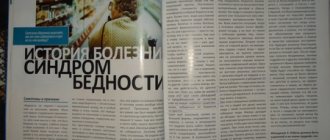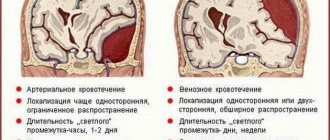Wrong diagnosis
Colds and runny nose can easily be confused with other diseases that need to be treated differently. Often, an allergy is hidden under the symptoms of a viral infection. It is also accompanied by a runny nose, cough, sneezing, general malaise, and profuse lacrimation, just like a cold. However, the first signs of an allergic reaction appear literally immediately and only when interacting with an allergen. But the symptoms of a viral disease usually develop within a few days and do not go away without proper treatment.
Another striking difference between a cold and an allergy is pain in the eyes, nose and thick, yellowish discharge from the sinuses, when, as in an allergic reaction, this discharge has a light or transparent tint. A cold infection can also be confused with diseases such as rubella, Epstein-Barr virus, borreliosis, Lyme disease, etc. That is why, at the first signs of illness, it is better to consult a specialist to make an accurate diagnosis and prescribe competent treatment.
Possible complications
A persistent cold, if not treated in time, can cause very serious complications with the most severe consequences. If there are any chronic diseases, then it is likely that their exacerbation will follow. Most often, a prolonged illness provokes the following complications.
- Bronchitis
Bronchitis is characterized by a frequent and severe cough, which is accompanied by the discharge of yellow-green sputum. If the patient has ever suffered from this disease, it will certainly manifest itself as a complication. With chronic bronchitis, the cough can last for more than 2 months. When treating it, the state of the immune system is very important.
- Otitis
This inflammation of one of the ear parts causes unbearable, shooting pains, which are especially disturbing at night, preventing you from falling asleep. Sometimes pus, having broken through the membrane, flows out of the ear. Children often suffer from otitis media.
- Sinusitis
Article on the topic: Common reasons for regurgitation
Causes inflammation of the sinuses, nasal congestion, and often fever. The disease is associated with very severe headaches. Sinusitis is dangerous due to further complications that can lead to serious illnesses: meningitis, rheumatism, pneumonia.
- Pneumonia
This is a serious lung disease. Coughing attacks are accompanied by wheezing, fever and high temperature, as well as shortness of breath. It is impossible to treat pneumonia on your own; the patient must be taken to a hospital.
Complication of a cold
It is one thing when a cold is diagnosed incorrectly, and quite another when, due to various circumstances, it turns into a more serious illness. In such a situation, it is very important not to miss the moment and visit a doctor in a timely manner to adjust the treatment. Colds and runny nose can develop into sinusitis, bronchitis, otitis media, pneumonia and other diseases that require complex and lengthy treatment. Usually, acute symptoms of a viral infection with the right approach disappear within 3-4 days. If by this point they do not decrease, but only intensify, then perhaps we are talking about a developing complication of the disease, and you should definitely consult a doctor.
Complications of a lingering cold
A common cold that is not treated promptly can lead to serious consequences. First of all, those chronic diseases that the patient already had will worsen. The most serious complications are damage to the brain - meningoencephalitis, or heart muscle - myocarditis.
These pathologies can be fatal, but fortunately, they are rare today. More common complications of a lingering cold are:
- Bronchitis. It manifests itself as a strong and constant cough with the discharge of yellow-green sputum. If the patient already has a history of chronic sinusitis or bronchitis, then long-term ARVI will be the impetus for their exacerbation.
- Otitis. The pain in the ear is shooting, very strong, disturbing mainly at night and simply exhausting the person. If the membrane ruptures, pus may leak from the ear.
- Sinusitis. In this case, the nasal sinuses become inflamed, the patient suffers from severe headaches, nasal congestion, and often fever, which can last up to 10 days.
- Pneumonia or pneumonia. Symptoms of this pathology are paroxysmal cough with wheezing and whistling in the chest, severe fever, shortness of breath. Pneumonia can only be treated in a hospital setting; previously the disease was considered fatal.
A common cold, ignored at the initial stage, can ultimately lead to much more serious time and financial costs for treatment than it could have been, and cause serious damage to the entire body.
The video in this article is intended to help the reader in choosing remedies for the treatment of long-term colds.
Insufficient rest
During the period of fighting the disease, the body expends a lot of energy, to replenish which a sufficient amount of sleep and rest is necessary. Sleep helps keep your immune system functioning. If a person does not get enough rest and suffers an illness “on his feet,” then the treatment of a cold will be delayed, and the infection may develop into something more serious and dangerous. It is advisable to maintain a calm, gentle regimen with plenty of sleep and rest at least in the first three days of a cold. This will help the body recover faster and fight viruses and bacteria more effectively. In addition, people who sleep little (less than 7-8 hours) catch colds more often than others.
How to treat a persistent cold
It must be said right away: a lingering cold will never be cured if you try to cope with it on your own and do not consult a doctor. Some desperate patients begin to mindlessly take strong antibiotics, hoping to eliminate the infection. But this is a fundamentally erroneous opinion. ARVI pathogens are not sensitive to any antibiotics.
That is why, first of all, the doctor will order a full examination and send the patient for tests - in order to begin effective treatment, the causative agent of the infection must be identified. Antibiotics can only further harm an already suppressed immune system.
It often turns out that ARVI becomes chronic due to concomitant infectious diseases or allergies. Both pathologies need to be treated, but they can again be detected and diagnosed only with the help of high-quality diagnostics and tests.
A persistent cold should be treated according to the following scheme:
- Restore and maintain immunity. To do this, you need to take multivitamin complexes, courses are carried out 1-2 times a year, some can be taken constantly. Vitamins B and D activate the immune system, so they are required in vitamin preparations. Nutrition also plays a role, the diet should include fresh fruits and vegetables, lean meat and fish, but it is impossible to get the required amount of vitamins from food alone; you cannot do without additives;
- Get enough sleep. Lack of sleep is unacceptable when you have a lingering cold. You need to put everything aside and get a good rest at night so that your body has time to recover. Otherwise, he will not be able to fight the infection at full strength. A healthy adult should rest at least 7 hours a day; a sick person needs two hours more. Before going to bed, the bedroom should be ventilated so that the air in the room is cool;
- Drink plenty of fluids. For any cold, no matter how long it lasts, you need to drink plenty of fluids. At a temperature, water will prevent dehydration of the body, and in case of a viral infection it will liquefy thick secretions in the bronchi. If a person drinks a lot of liquid, he sweats more, pathogenic microorganisms are eliminated through sweat and urine faster. But it should not be coffee and packaged juice, but pure water, herbal teas and decoctions, berry fruit drinks;
- Maintaining hygiene is a very important prevention of influenza and ARVI. It is very important to wash your hands with soap every time you return home from the street, but even while on sick leave, this should be done several times a day, since viruses can settle on any surface and remain viable for several more hours. By touching his face with unwashed hands, the patient reinfects himself and delays recovery.
Of course, medications must also be taken - strictly in the dosage and according to the schedule indicated by the doctor.
Incorrect treatment of colds
Many people do not consider colds and runny noses to be a serious illness, and often choose self-treatment without consulting a doctor. In folk medicine there are many recipes for combating viral infections, but not all of these methods are effective and safe. It must be taken into account that each organism has its own individual characteristics and predispositions to certain home remedies. Only an experienced professional can prescribe the optimal and effective treatment for a cold without harm to health. Even if you don’t want to use store-bought medications, replacing them with herbs and other alternative methods, you should first talk to your doctor about their choice and dosage.
In addition to incorrectly selected traditional methods of treatment, there is a danger of choosing medications on your own, relying on advertising and advice from friends. This is especially true for antibiotics. Now pharmacists do not have the right to sell such drugs without an official prescription from a doctor. But some people manage to purchase antibiotics without the necessary documents and begin treatment that is incorrect and dangerous for them. In most cases, viral infections are not treated with antibiotics, which may even make the disease worse.
Human mental disorders
However, among all diseases, the so-called “diseases of the soul” - chronic mental disorders - stand out separately.
Since the human psyche is a rather subtle matter that is easily disturbed due to many factors, we can call mental disorders rather symptoms of larger diseases that are caused by external factors, ranging from the effects of psychoactive drugs, and ending with mechanical injuries, environmental features and genetics. Moreover, not every person on earth can be called mentally healthy, since most chronic mental disorders can be perceived by society as the norm.
go to top
Non-compliance with drinking regime
If the body does not have enough water, all its processes slow down, which negatively affects a person’s well-being. Drinking regime is especially important during a cold. Sweating due to high temperature, frequent sneezing and runny nose remove fluid from the body, which must be replenished in a timely manner. In addition, drinking plenty of fluids can soothe a sore throat, facilitate the swallowing process, and prevent the formation of mucus in the nose and mouth, literally “washing” germs and viruses from the body.
Taking cold medications can often cause dehydration. Most of them should generally be taken with plenty of water to avoid causing stomach problems. In addition to water, the drinking regimen during a cold infection includes juices, compotes, soups, fruit drinks, and herbal teas. You shouldn’t rely too much on regular black or green tea and coffee, since caffeine strains the heart and slightly dehydrates, which is harmful for a weakened body. But it is better to completely avoid alcoholic drinks during the period of illness.
Severe stress
When a person is stressed or anxious, the immune system is weakened and many body functions slow down. The body loses its ability to quickly respond to cortisol, a hormone involved in fending off attacks from cold viruses. This makes it difficult to fight infection and prolongs the healing process. It is advisable to avoid stressful situations and learn to control your emotions through the practice of deep breathing, meditation, yoga, etc. Due to stress, the treatment of a cold can not only be delayed, but also cause dangerous complications.
Other factors
As mentioned above, a long course of prolonged pneumonia mainly occurs due to decreased immunity, protective factors change: the activity of lymphocytes decreases, interferon synthesis decreases, and the intensity of macrophages decreases. As a result, the body’s protective function weakens, which contributes to the long-term progression of the inflammatory process. In addition to reducing a person’s immune defense, there are other factors that contribute to the development of prolonged pneumonia. This is incorrect treatment, irrational selection of the drug, the possibility of the causative agent of inflammation developing immunity to the antibiotics used. And also untimely treatment allows not only this pathology to develop, but also all existing diseases.
Uncovered head with a runny nose
Colds and runny nose are more common during cold seasons. To avoid catching the disease or making it worse, you must wear weather-appropriate clothing. It is especially important to protect your head and throat, remembering to wear a hat and tie a scarf or scarf around your neck. According to folk medicine, to quickly cure a runny nose, you need to wrap your head in a warm scarf or hat and do not take it off even indoors and during night sleep. Doctors are skeptical about this method of treatment, but strongly recommend protecting your head from the cold outside.
Protracted illness
After the first visit to the kindergarten, my masks (we went together in one group on September 9) took 5 days and we have been sick for a month. Moreover, it feels like completely different sores of viral origin. The eldest daughter is 3.4 years old, the youngest is 1.8.
It all started with the standard snot and red throat 14 Sep. The patient was treated for a week with saline rinses and warm drinks. And also by washing floors and bedside tables, in order to quell the desire of mom and dad to run to the pharmacy and buy everything they can get their hands on, just so that these nasty snot will leave behind.
After 7 days of treatment, the eldest perked up, we went for a walk, and it was cold there. On the 8th day, the youngest gave a temperature of 38.5, since she tolerated the pace well and did not slow down. For two days, just the weekend, we watched a running child with scarlet cheeks burning from the pace. From Mon. no one had the pace on Wednesday. On Wednesday. 25 Sep. a smart mother (that is, me) decided to take the cubs to the pediatrician, show their throats, noses and ask them to take them to kindergarten. The older one was discharged, but the younger one was told to get her neck treated.
On Mon. 30 Sep. The same highly educated mother again took the children to the clinic. Where my two children climbed and kissed all the walls, floors and seats during an hour of waiting in line. They also put all 10 fingers in his mouth. As a result, they told me to treat the younger one again and take the older one to the garden. They prescribed vitamins Kiddy Formaton, Ingalipt, Anaferon and Imupret - all of which I decided to buy with my last money and stuff them into the children.
By the evening of the same day, the eldest was 37.5, in the morning - already 38.5. We were treated with rinses + all the purchased junk. The eldest’s temperature does not drop below 37.5, so she tolerates it very poorly, we knock it down with Nurofen, but it grows to 38.5 - 38.8. We add a quarter of aspirin, analgin and mefinamic acid - this is the only way it drops to 37, after 2-3 hours it is again 38.5. On Wednesday. the child begins to complain about his ear, to which the no less educated father says - this is because the pace is high; nothing needs to be done.
As a result, on Thursday. Oct 3 We are at the emergency room in a hospital with catarrhal otitis media. They sent me home to be treated with Otipax, Nurofen, and the antibiotic Cefodox + yogurt. On Saturday they added orasept, isofra, and pharyngosept, since both of their throats were red and the snot did not go away. The eldest's pace lasted until the end, but improvements were obvious. We even walked in the forest for an hour.
On the night from Sun. on Mon. the youngest gives a temp of 38.5, in the afternoon 37. We also start giving her cefodox + yogurt, isofru. The tempo is tolerated well, the next night the temperature increased from 37 to 39.5, but even then the child slept peacefully and did not scream. They woke me up and knocked me down to 37. After that there was no more increase.
Since Tuesday, everyone has been coughing intensely and the snot has become thicker. We added mucoltin and dry cough syrup for children. We rinse our nose further. The older one's snot is cloudy brownish on one side. The youngest ones are transparent.
The feeling that we are all infecting each other - while one is fighting one virus, the other grabs the second, and infects the first, and the latter infects it with its own. I’ll add that during this period our dad is also at home on sick leave with the same symptoms + he brings his own from work. He is our teacher of more than enough sources of infections.
I made the following conclusions from this epic:
1. Do not take children to the clinic after the first signs of improvement - we grab new bacilli on the weakened mucous membranes. The solution is to wait 3-4 days after the improvement and call a doctor at home; if he confirms recovery, I go to the virus factory myself, go to the clinic, and take a certificate from the garden.
2. Leave dad at home at the first symptoms of snot and treat him, and not go to work sick for another 2 weeks.
3. Smear dad and children with sap from head to toe. I myself do this every day and with such a concentration of patients per square meter. centimeter) managed not to get as seriously ill as they did. Although I don’t think that my body is stronger after two pregnancies, childbirth and continuous breastfeeding for more than 3 years. (both are still on GW at night)
4. Don’t be lazy and don’t be afraid - as soon as the pace normalizes, walk and walk!
5. Wash the floors every day before going to bed.
6. I removed all dust collectors (even curtains during illness).
7. Well, it’s okay to warm up with air conditioning and gas, it’s better to dress warmly. Even a powerful humidifier will not save the mucous membranes.
That seems to be all for now. We are still sick. I hope the cough is a sign of recovery and not a new attack.
But a question arose. Is it worth paying for a quartz lamp or a bactericidal one? Will this help avoid such a cycle of battles in the family?
PS: thanks to everyone who lived to see the end of the story and did not hang himself in the middle of my opus
Increased physical activity
Since the body's reserves are exhausted during illness, it is important to reduce the amount of physical activity, and in some cases, abandon it altogether. For example, when the temperature rises, a feeling of weakness and dizziness appears, then it is better for a person to refrain from the usual training, physical work and lie down quietly, taking the necessary medications. Prolonged treatment of a cold may be due to the fact that the person suffering from the infection does not reduce the amount of physical activity. This will require a huge amount of energy from the body and will interfere with recovery.
Poor hygiene
It is not without reason that doctors advise washing your hands regularly and thoroughly during colds. This simple procedure can protect a person from most viral diseases. In addition to your hands, it is useful to rinse your eyes with running water and rinse your mouth. If someone in the house has a cold or there is an official warning about an impending flu epidemic, it is worth keeping special antibacterial soap in the bathroom to improve hand hygiene. It is not recommended to use it constantly, since the substances in its composition dry out the skin greatly. For safety reasons, it is useful to use protective masks and avoid contact with sick people.
Dry or smoky air
For a speedy recovery, it is important that the air around a person is moist and moderately cool. Therefore, the room in which the patient is located should be regularly ventilated and moistened. The course of the disease may be prolonged due to the fact that a person smokes or frequently interacts with people who smoke. Cigarette smoke causes dryness in the respiratory tract, which does not have the best effect on the treatment process. Colds are also caused by too intense operation of heating appliances: radiators, stoves, fireplaces, etc. Warm air quickly dries out the nose and larynx, causing irritation and retaining mucus.
Take the test
Flu or acute respiratory infection?
Many people confuse the flu and acute respiratory infections and, as a result, are treated incorrectly. After taking this test, you will be able to distinguish one from the other.
Conditions for successful therapy
For therapy to be successful, the following medical recommendations must be followed.
Article on the topic: Ball lightning is a mysterious and unpredictable phenomenon
It is difficult to maintain health without a strong immune system. In order to protect it, you need to review your menu and choose foods rich in vitamins and nutrients. Nutrition plays a huge role in increasing the body's defenses. You need to change your diet to include more fruits and vegetables. Due to the presence of fiber, they will help improve intestinal function. This will help to quickly remove metabolic products that contain many harmful substances. In addition, fiber supplies the body with essential microelements.
To cure a lingering cold, you need to get proper rest. You must get enough sleep. The norm for a healthy adult is seven hours. The patient should rest 2-3 hours more, depending on the condition.
A restful sleep gives strength, restores organ function and promotes health. At this time, the medications you take are more effective. Before going to bed, you need to ventilate the room, as cool air cleanses the lungs and promotes better rest.
Requires drinking plenty of fluids. This must be clean water. In case of high temperature, it will prevent dangerous dehydration. Toxins, and with them pathogenic microorganisms, will dissolve in water and be excreted in urine or sweat. You cannot replace clean water with juices that come in packages or sugary drinks. You can drink herbal teas and berry fruit drinks.
A lingering cold also requires compliance with hygiene rules. It is necessary to wash your hands with soap more often, because a large number of pathogenic microorganisms settle on them, which remain viable for a long time. Upon contact with the patient’s face, the patient re-infects himself, delaying the treatment process.
Following these recommendations does not replace drug therapy. All specialist appointments must be completed on time and in the quantity prescribed by the doctor.











